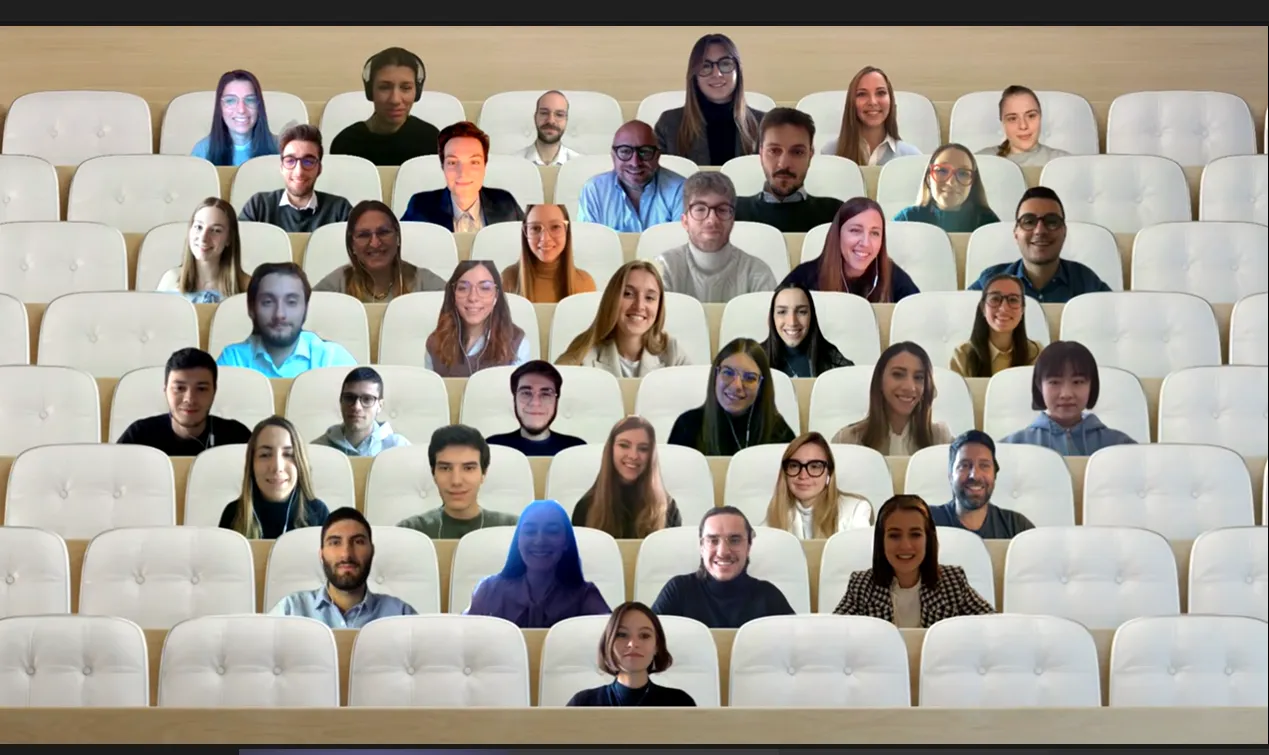
Persol Glasses Are Best Marketed Jointly with Campari or Vespa
Movie icons like Greta Garbo and Steve McQueen but also sport champions like Alberto Tomba, Alessandro Del Piero and Jean Alesi wore Persol sunglasses. Perhaps the most famous episode associated with the brand concerns one of the greatest Italian literary figures of the twentieth century, Gabriele d'Annunzio, who wore them during his historic propaganda flight over Vienna in 1918. For over a century, Persol glasses have been a symbol of Italian elegance and sportiness, characteristics that remained intact after the acquisition by the Luxottica Group in the second half of the 1990s.
In fact, the Persol brand was the object of the Consumer Insights Challenge organized as part of the Understanding Consumers course, headed by Stefania Borghini. It represents one of the activities of the Luxottica Chair in Chinese Market and Business Development held by Fabrizio Perretti.
"There were a total of 132 students involved, coming from both the Italian- and English-language classes", explains Stefania Borghini, "and they were divided into groups of about six students each who had to identify the means and strategies to bring the brand closer to an audience younger than the traditional one. They had to understand which tools they should use for marketing communication and what kind of people to involve, while carrying out qualitative research through interviews, all of which was naturally done remotely because of the pandemic".
The task actually hid some traps, as explained by Davide Simone, Marketing Management student and spokesperson for the team named Let's Not Lose Sight (Alessandro Benini, Davide Galli, Anna Danilova, Michela Campitiello, Edoardo Angella the other members), which won the Italian-language competition: "The Persol brand has 35-50 year-olds as its target segment, so we had to try to rejuvenate it by marketing it jointly with another Italian brand. The target cohort Persol is after? The 25-35 year-olds, i.e. millennials a little bit older than us". The partner chosen for the promotion combination was Campari. "Why? First of all because, like Persol, it is a symbol of Italian excellence in the world, then because the two brands share the fact they are consumed in leisure time, for instance while going out and drinking an aperitivo. And we wanted to find a collaboration that would reach both target audiences". The work was executed online, as is required these days, but this was not a major obstacle. To the contrary: "We collaborated very effectively both in the first part of the work, that of focused interviews with the methods learned in class, as well as in the second, which was the more creative phase. And the results have rewarded our work".
The English-language winning team (class instructors Andrea Rurale and Anastasia Nanni) chose another historic Made in Italy brand, in a leisure time combination that went right for the heart of the jury: Vespa. "Our idea was to propose a campaign in collaboration with Vespa, another iconic Italian brand, thinking that soon people will return to travel around Italy, to experience the Italian culture," says Theodore Kyriakakis, a Greek student of the MSc in Marketing Management, spokesperson of the Persol for Vespa team composed of Dania Milletti, Edoardo Gammaraccio, Julija Rupnik, Luying Xu, and Giovanni Falomo. "By doing this work, my team has understood how to build an actual marketing project, while also respecting a brand and its history. It was also instructive to have constant interaction with the Luxottica managers at our side, who provided really interesting insights".
"If the business case on Persol gave the students the chance to work on a real case, it left us as a company the opportunity to collect very valuable ideas and also concrete input that we can include in our strategy. The added value of dealing with the new generations, in fact, allows us to have a different and innovative point of view, not conditioned by company dynamics. The advice I leave to students is to approach the world of work with the same openness. It is in this way that you find the right cues to be able to build plans and strategies that lead to the growth of a brand," comments Nicolaas Van Geet, Luxury House Brands Director.